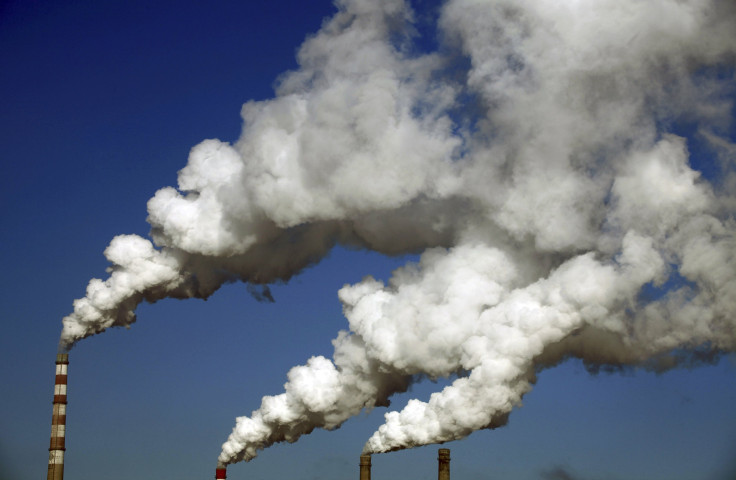Obama Climate Change Agenda Faces Dual Attacks From House GOP This Week

House Republicans are pushing legislation to defang a central piece of President Barack Obama’s climate change agenda. Policymakers will vote twice this week on measures to scale back proposed limits on power plant emissions and hamstring other prominent clean air and water rules.
The votes come days after Pope Francis urged countries and citizens to decrease carbon output, protect drinking water and confront both poverty and a culture of wasteful consumerism. Obama cheered the pope’s encyclical Thursday and hailed his administration’s own efforts to limit greenhouse gas emissions and develop cleaner, more efficient energy supplies.
The first House bill on this week’s docket would allow states to opt out of the Clean Power Plan, the hallmark of Obama's climate action plan. The proposed rule, which could be finalized this summer, requires states to slash power plant emissions by up to 30 percent from 2005 levels by 2030. Rep. Ed Whitfield's, R-Ky., Ratepayer Protection Act, up for a vote Tuesday, would let states opt out of participating and freeze the implementation of the power plant rules until all legal battles are settled.
Critics of the Clean Power Plan say it would decimate the U.S. coal industry, jeopardize thousands of jobs and drive up electricity costs for businesses and residents. America’s coal production could plunge to levels not seen since the 1970s if the proposed rules take effect, the Energy Information Administration, a federal statistics agency, reported last month. With the plan in place, coal plants will account for only about one-third of total U.S. electricity generation, down from roughly 40 percent today, the administration estimates.
The Obama administration and its supporters say the Environmental Protection Agency’s rules are critical for reducing global warming pollution and spurring investments in wind, solar, nuclear and other lower-carbon power sources. Emissions from the power sector are projected to rise by 2 percent or more by 2040 -- even if the economy weakens and oil prices spike -- without the proposed regulations, the statistics agency said.
The second House measure to limit the Clean Power Plan comes Thursday. Policymakers will vote on a 2016 spending plan for the EPA and Interior Department. The $30.17 billion funding proposal would cut the EPA’s budget by 9 percent compared to fiscal year 2015, as well as bar the agency from enforcing the power plant rules. The bill also includes a rider to block the EPA’s sweeping initiative to protect U.S. waterways and wetlands from pollution and rampant development. The measure, finalized in May, is meant to clarify which streams, rivers, ponds and lakes are federally protected under the Clean Water Act.
House Democrats have criticized the spending bill, arguing that it “drastically underfunds a lot of necessary programs,” Adam Sarvana, spokesman for Rep. Raul Grijalva, D-Ariz., told the National Journal. “These riders stand in the way of meeting these [environmental] responsibilities.”
© Copyright IBTimes 2025. All rights reserved.



















